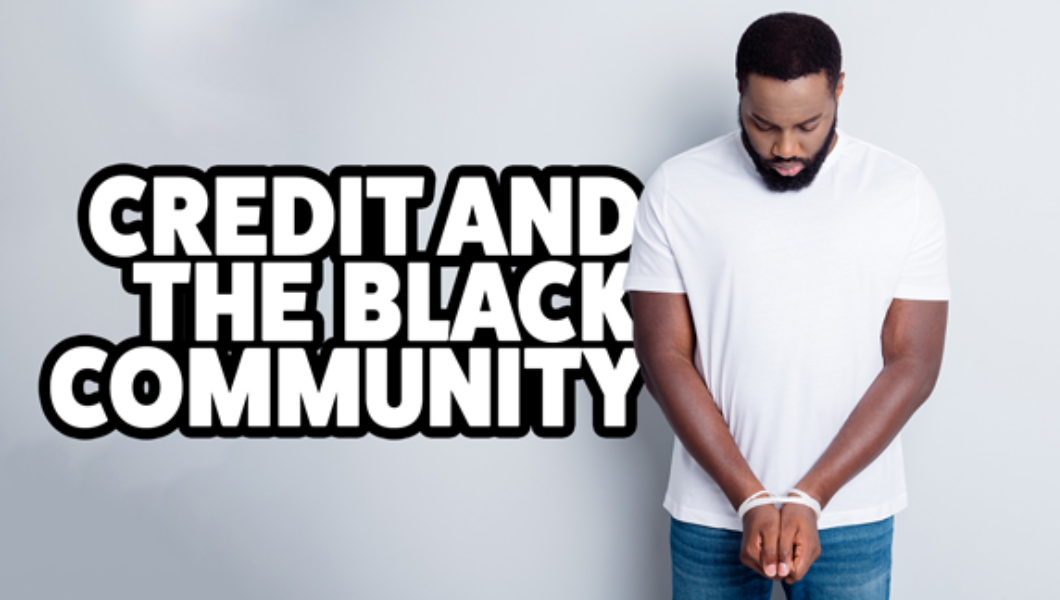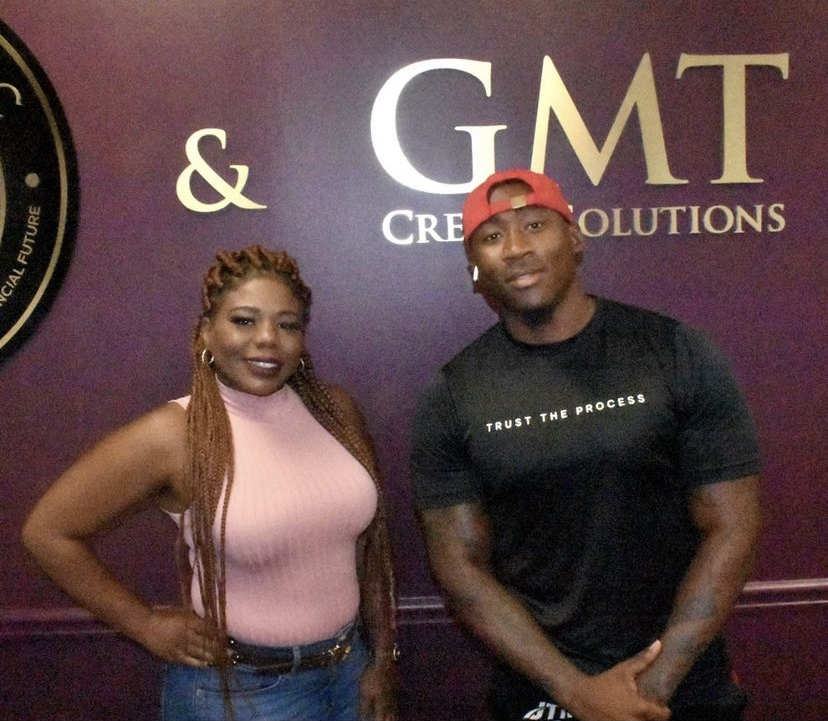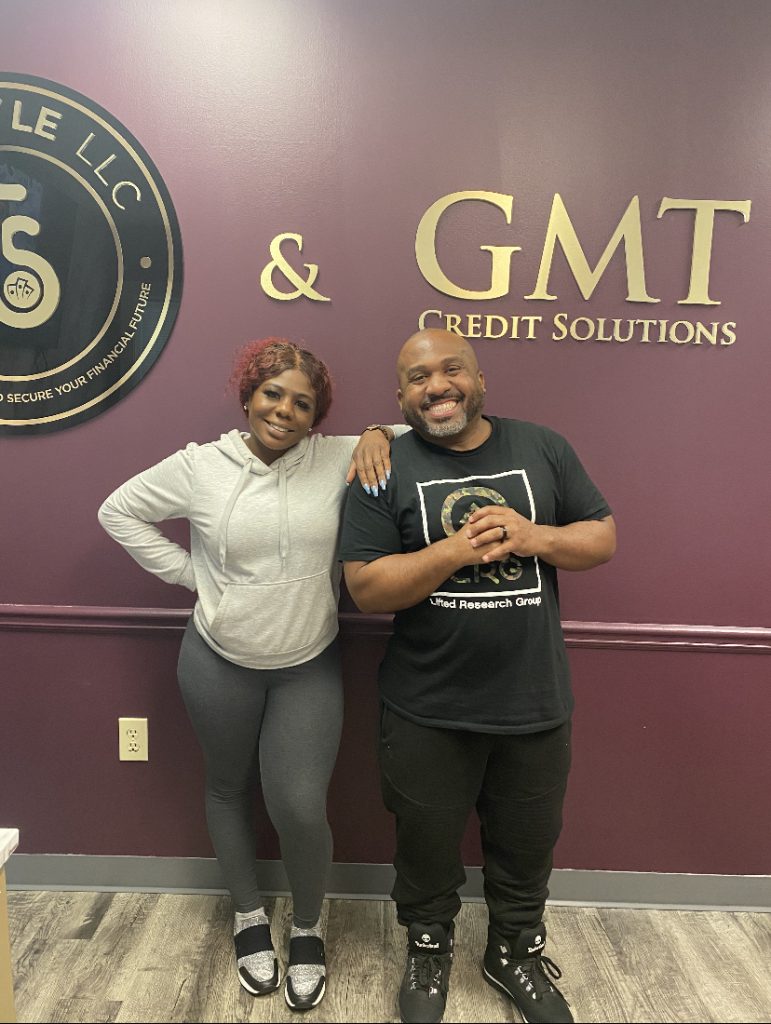➤ Need Funding or Building Your Business Credit? Click Here
➤ Need to Boost Your Credit Score? Click Here
➤ Connect with us on Facebook: The GMT Academy LLC
➤ Follow Us on Instagram: @TyeStyleCreditLady
In America, the ideal standard of living is supposedly fair and balanced. Ease of access to a better lifestyle for everyone is ingrained in this country’s soil, as goes the time-tested saying, “Pull yourself up by your bootstraps!” Meaning if you work hard enough and save, you, too, can be financially stable, and even rich one day!
Unfortunately, this perception is false. Perhaps for the majority of white Americans, one could borrow from banks happily while viewing their credit scores through rose-colored glasses. For the rest of minority Americans, particularly the black community, the real story is much more bleak—unveiling the true nature of a racially-biased system.
Regardless of whether you are financially responsible or not, the legacy of slavery still echoes silently in America. This invisible war is waged especially hard against the African American community and their ability to provide a better lifestyle for themselves and their families. Blacks must endure huge obstacles when trying to apply for and obtain personal credit, stemming from historically racist banking practices that trickle down into the very credit scoring system used to evaluate Americans and their ability to pay back lenders.
For many decades, discriminatory employment practices, lending policies, criminal prosecution and credit scoring methods have oppressed the black community. This system has ensured banks and predatory loaners can pin African Americans down into poverty and, ultimately, to keep them within this cycle of hardship.
Looking further into these issues, we begin to uncover why the U.S. credit system operates the way it does, and more importantly, how this has marginalized the black community for far too long.
The Black Community Vs. The Credit Scoring System Credit scores are intended to be an accurate measure of financial responsibility for Americans all across the board. However, the very system founded upon this ideal fails itself by financially prejudicing the black community. According to Lisa D. Cook, Michigan State University economist and former senior economist at the White House Council of Economic Advisers under the Obama Administration, not only do black families have 90% wealth than White families—their ability to get mortgages to even have a home is barred. Homeownership among whites is 30% higher than those of the black community, not to mention the statistically higher interest rates and denial rates amongst blacks.
It’s no surprise minorities have been finding it harder and harder to obtain credit lately, particularly with mortgages or car loans. Credit scores are the primarily evaluating factor considered when applying for such large-ticket investments—but what does one do when the national financial machine isn’t as fair as it is claimed to be?
CNBC explores a research study finding that black applicants were disproportionately turned away, as opposed to whites, in 48 metropolitan areas. These concerning figures uncover the financial disparity suffered by the black community—but why are these numbers so high, and where do the issues stem from?
What has happened is racial inequality has paved the path to credit inequality. The system which is supposed to level the playing field for all has in fact widened the wealth gap between whites and African Americans. The reason? History repeats itself, as was clear a hundred years ago.
The Root Causes of Financial Hardship for the Black Community
It turns out that the credit scoring system, when examined in a detailed fashion, worsens the very racial wealth gap issues that it is designed to bridge. Cook claims that credit scores worsen this factor by restricting a person’s ability to grow wealth and succeed financially in the U.S., since these scores pave the path to obtaining housing, insurance and a higher overall quality of life.
For Black Americans, however, this path has been riddled with centuries of higher-interest debt, lower average earning power, and extreme difficulty in obtaining a home.
“Your credit score is probably the most important number in your financial life,” says Ted Rossman, industry analyst at Bankrate. The power of credit is huge; higher credit scores enable a responsible person to lower interest payments on student loans or car payments, acquire housing, and, in some occasions, even land a job.
Landlords and employers check this number, whether you know it or not. “Credit scores are supposed to be blind to race, age, income and geography,” Rossman explains. The main scorer used in America is FICO, whose rival is VantageScore (a scoring model comprised of three major credit bureaus: Experian, Equifax and TransUnion.)
While these bureaus mainly refer to data such as payment history, debts, late payments, and account history to formulate your creditworthiness, there’s that one word which goes unseen and unheard…the “algorithm”.
Apparently, nobody truly knows exactly all of the information that is gathered and evaluated in credit scoring. There are actually several other hidden factors which contribute to the final credit score, some of which have been putting the black community at a financial disadvantage for decades. The root of these issues stems from systemic racism dating all the way back to 1933 to 1968, a period during which “redlining” was rampant.
This practice explains a long history of U.S. banks denying the black community access to financial services and credit lines. White male loan officers would be all that was in between a colored woman and her family trying to desperately obtain an apartment—and usually, those chances were slim.
Today, redlining is illegal and with it, the use of race to consider one’s credit score. In fact, the very invention of the personal credit scoring system after the passing of the 1974 Equal Credit Opportunity Act banned bureaus from using information such as sex, marital status, national origin, religion, or race in credit evaluation.
The unfortunate reality is that the same redlining tactics are quietly still in play.
A 2018 study by the National Community Reinvestment Coalition found that “while overt redlining is illegal today, having been prohibited under the Fair Housing Act of 1968, its enduring effect is still evident in the structure of U.S. cities.”
A current rating system endorsed by Home Owners’ Loan Corp—a federal U.S. agency—specifically designated Black neighborhoods as “too risky” for mortgage lending. As a result, these communities are forced to turn to payday loans, predatory lenders or high-interest rental agreements, simply because of the color of their skin.
Once the black community succumbs to these predatory tactics, they are stuck in a vicious loop of negative credit, lower earning ability, and accumulation of debt.
These payday loans become increasingly harder to pay off, leading to more debit and lower credit scores. Ultimately, this leads to restricted access to capital, another loan taken out, an even more expensive interest rate—“it’s a domino effect”, says Cook.
This path eventually leads to “credit invisibility”, leaving a person without any access to basic necessities, rendering them nearly financially paralyzed. This is the crisis millions of African Americans, Latinos and young people in general are facing, regardless of their true creditworthiness.
Solutions To A Broken System
Living in such a broken system would leave one wondering: is there any hope going forward?
Cook explains, “one proposal is for bureaus to take into account the payment of utility bills, like water and electric bills, because they really show how creditworthy you are.”
While current FICO scoring models to not factor in income, savings, utility bills or debited transactions, certain members of Congress, including one Senator Tim Scott of South Carolina, are making it their mission to change the system. “There needs to be an alternative scoring model to judge credit-worthiness,” he says. He introduced the Credit Score Competition Act, which would propose an alternative model to determine credit history. The legislation would include millions of responsible Americans’ consistent payments for rent, utilities, and phone bills as credit determination factors. “With gentrification and an increasing shortage of affordable housing, no one can afford to be “credit invisible.” Having access to credit is like having access to a better life,” Scott affirms.
When turning the conversation over to the big federal agencies, the numbers don’t lie, either. All three major credit bureaus mentioned earlier found that civil judgement and tax lien data was often reported incorrectly and not updated with accurate data—making the system redundant. These particular types of information can actually be major obstacles to obtaining credit, and the bureaus have since removed these factors from credit reports entirely.
The only true way for the people and its system to move forward is in harmony. Progressive legislation and a community of voices will soon create a new road for a better, more financially balanced America.
However, it is also up to us within the black community to do our best to uphold our own financial responsibilities. Leveraging better credit scores and on-time payments will be extremely valuable tools to fix your credit. Therefore, it is encouraged to check your personal credit history for mistakes, pay bills on time, save steadily to provide for these payments and lower credit utilization rate to really boost your credit score.
Another intelligent option is to consider a credit union or credit management solution, such as TyeStyle Credit Solutions, to help promote equality in equity! Rather than opting for a traditional bank, credit unions are localized and cater to their community by providing specifically designed loans and financial solutions to low-income earners and marginalized minority groups.
As the National Credit Union Association explains, “Minority-owned and managed credit unions plays a critical role in providing financial services to communities that have been traditionally underserved or underbanked. Some credit unions have a specific mission to help close the racial wealth gap.”
At TyeStyle Credit Solutions, that has remained one of our major goals from the beginning. We aspire to help serve Atlanta’s black community in the pursuit of financial growth and long-term success for you and your family!
We invite you to reach out to us today, as we can take an in-depth look at your credit health and history, uncover areas needing attention and explore the suite of credit repair solutions and services we offer which we can use to build your future!






























